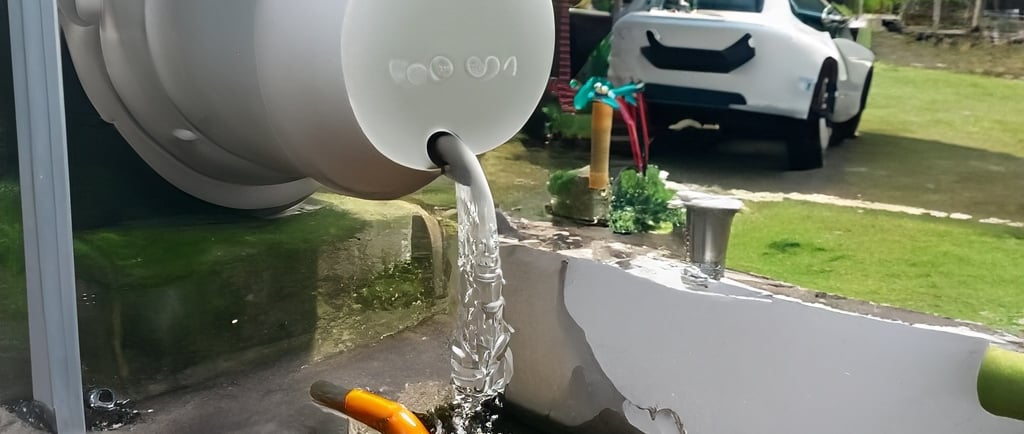Water-Powered Revolution: Indonesian Invention Replaces Vehicle Fuel
The global pursuit of sustainable energy sources has sparked ingenious innovations worldwide. Indonesian scientists have now developed an exceptional invention that has the potential to transform the transportation industry as we know it. This groundbreaking technology allows for vehicle fuel to be derived from an abundant and renewable resource - water. The Water-Powered Engine The Indonesian invention centers around utilizing water as a primary source of fuel for vehicles. This innovative engine technology captures hydrogen gas from water molecules and uses it as a source of power. In essence, the water-powered engine replaces traditional fossil fuels with the most abundant compound on Earth - water. The Working Principle The water-powered engine utilizes an electrolysis process, which involves splitting water molecules into hydrogen and oxygen. By passing an electric current through water, hydrogen gas is separated and collected. This clean and efficient process significantly reduces harmful emissions, offering a sustainable alternative to conventional vehicles that rely on fossil fuels. Advantages of Water-Powered Vehicles 1. Environmental Benefits: The adoption of water-powered vehicles brings countless environmental advantages. Hydrogen fuel produces zero greenhouse gas emissions when burned, which considerably reduces carbon dioxide and other harmful pollutants responsible for climate change. 2. Renewable Energy Source: Water is an abundant resource on our planet and can be readily obtained from various sources such as lakes, rivers, and even seawater. The renewable nature of water makes it an ideal candidate for sustainable energy production. 3. Energy Efficiency: Hydrogen-fueled vehicles possess a higher energy efficiency ratio compared to conventional internal combustion engines. This means that more of the energy produced by the engine is converted into power, resulting in better mileage and longer driving range. 4. Economic Prosperity: With water-powered vehicles, countries like Indonesia can significantly reduce their dependence on expensive and volatile fossil fuel imports. This technology opens doors to economic opportunities, encouraging the growth of local industries and creating new jobs in the emerging clean energy sector. Challenges and Future Prospects While the prospect of water-powered vehicles holds immense potential, challenges still exist. The current limitations include the high cost of production, as well as a lack of infrastructure to support the widespread adoption of this technology. Additionally, advancements are needed to enhance the storage and transportation of hydrogen gas for practical use. However, the Indonesian scientific community is committed to addressing these challenges. The government and private sector are investing in research and development to improve the efficiency and affordability of water-powered engines. Collaborations with international partners can also accelerate progress and facilitate knowledge exchange. Conclusion The invention of a water-powered engine marks a significant milestone in sustainable transportation. Indonesia's innovative breakthrough presents a promising alternative to conventional vehicles, mitigating pollution, reducing greenhouse gas emissions, and decreasing reliance on fossil fuels. With continued research and investment, the widespread adoption of water-powered vehicles can steer us towards a cleaner, greener, and more sustainable future.
SUSTAINABILITY



